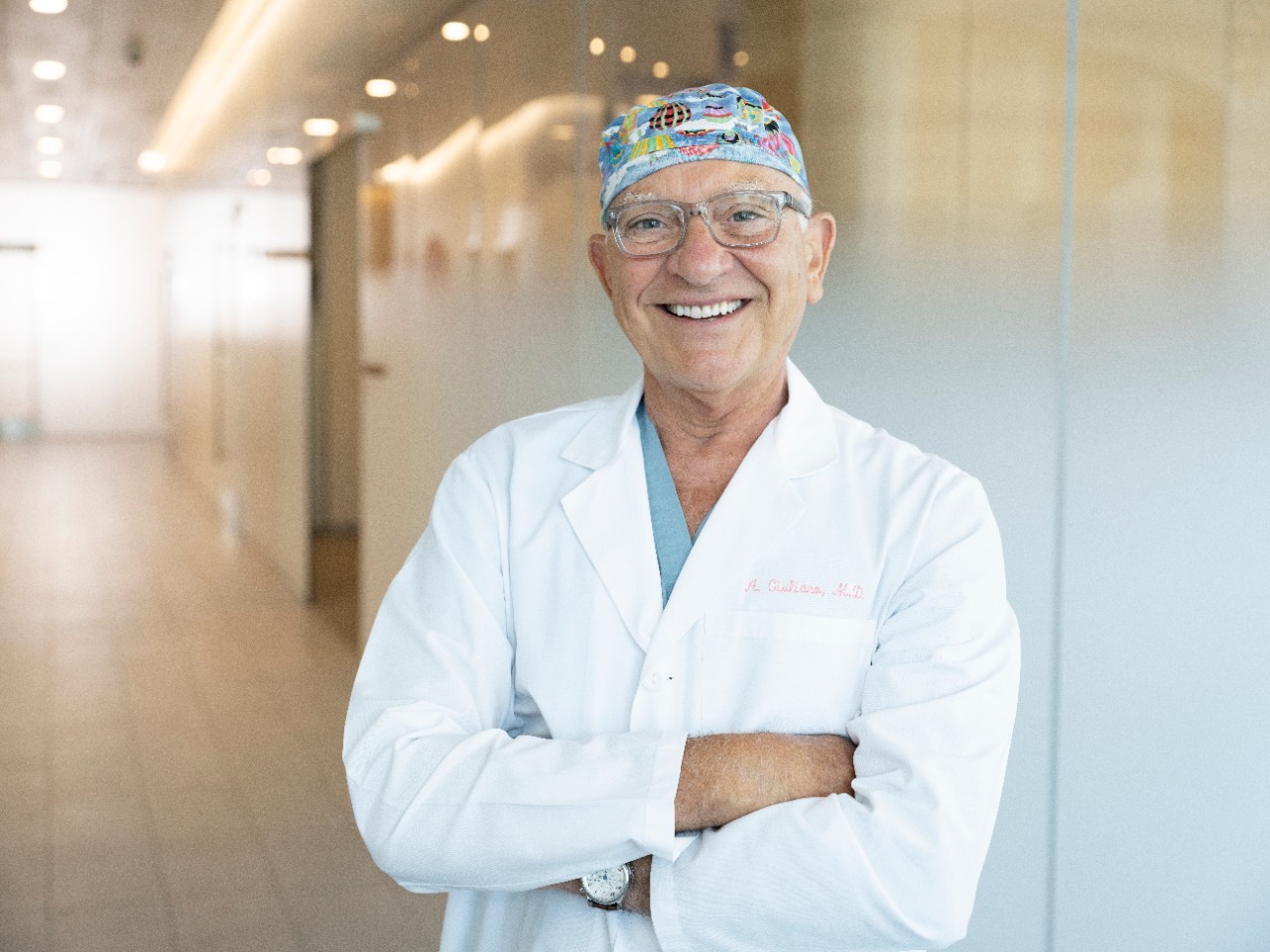Armando E. Giuliano, MD, Expands Role
Pioneering Surgical Oncologist Is Named Regional Medical Director of the Cedars-Sinai Cancer Breast Oncology Program
Pioneering breast cancer surgeon, clinician and researcher Armando E. Giuliano, MD—who helped introduce sentinel lymph node biopsy in the early 1990s, sparing many women the need for major breast cancer surgery—has been named regional medical director of the Cedars-Sinai Cancer Breast Oncology Program.
In his expanded role, Giuliano, who has spent more than 40 years treating breast cancer patients, will assist in recruitment, strategic planning and operation of the Surgical Oncology, Medical Oncology, Radiation Oncology, BRCA Center and High-Risk Breast programs throughout Cedars-Sinai Health System, which includes Cedars-Sinai Medical Center, Cedars-Sinai Marina del Rey Hospital, and affiliates Huntington Health and Torrance Memorial Medical Center.
“Dr. Giuliano has long been an important member of our faculty, bringing the best possible care to our breast cancer patients and using his expertise and leadership to guide our young cancer surgeons,” said Dan Theodorescu, MD, PhD, director of Cedars-Sinai Cancer and the PHASE ONE Foundation Distinguished Chair. “His new role will expand his opportunity to help patients with breast cancer survive and go on to live quality lives.”
Giuliano also will continue his work as co-director of the Saul and Joyce Brandman Breast Center—A Project of Women’s Guild, director of the Breast Oncology and Complex Surgical Oncology fellowship programs, associate director of Cedars-Sinai Cancer Surgical Oncology, and director of the Division of Surgical Oncology within the Department of Surgery.
When he attended Pritzker School of Medicine at the University of Chicago, Giuliano initially wanted to become a cardiologist, but a role model directed his interest toward surgery. He then took an interest in vascular surgery during his residency at the University of California, San Francisco School of Medicine, but a mentor sent him to UCLA to study oncology instead.
“There really is a great joy in caring for cancer patients,” said Giuliano, the Linda and Jim Lippman Chair in Surgical Oncology. “It’s all about taking care of one patient at a time and giving them the best quality care, with compassion and empathy.”
Giuliano led some of the first-ever studies of sentinel lymph node biopsy for the breast that resulted in changes to the standard of care for patients with early breast cancer. These studies concluded that if a patient’s sentinel node—the lymph node to which cancer cells are most likely to spread—tests negative in a biopsy, there is no need to remove other nodes. This has helped many early-stage cancer patients avoid extensive surgery and complications, such as fluid buildup and shoulder pain.
Giuliano joined Cedars-Sinai in 2011. The focus of his clinical research continues to be management of early breast cancer and quality of life of breast cancer patients. Under his direction, scientists in the Samuel Oschin Comprehensive Cancer Institute are studying triple negative breast cancer, BRCA-positive breast cancer, chemoresistance, mechanisms of genetic mutation and early metastases.
A past president of the Society of Surgical Oncology, Giuliano also continues to train new surgeons.
“I enjoy seeing young residents initially struggle to learn a new art, then succeed and move on to do great things,” he said. “My students go out, do what I taught them and help a lot of people with cancer.”
Read more from the Cedars-Sinai Blog: The Present and Future of Breast Reconstruction




